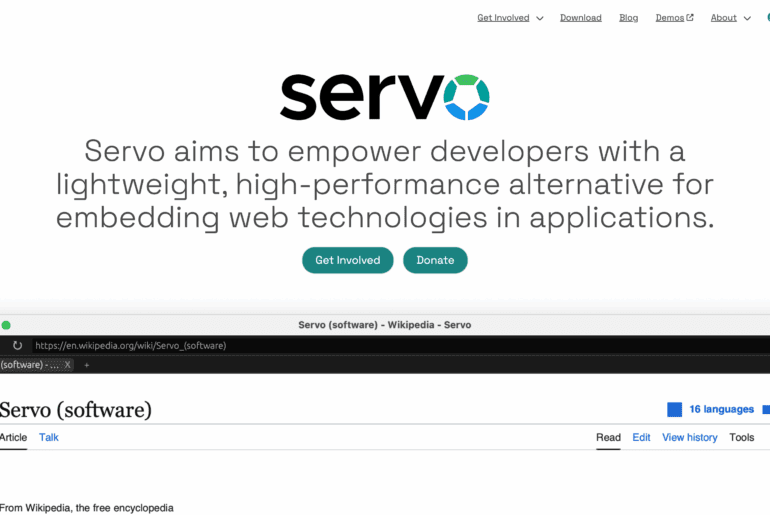Before we drop numbers, a confession: “average salary” is a deceptively slippery phrase. Do we mean mean, median, mode, or maybe “typical offer” in a given city? Are we talking base salary only, or including bonuses, stock, benefits? Are we referencing the U.S., Europe, Asia, or remote roles? All of these choices shift the picture.
So when I say “the average Java developer salary” take it as shorthand for a ballpark across mature tech markets, for mid-level roles, including some variable compensation. Your mileage may vary — and I’ll flag the caveats along the way.
Topline Numbers: U.S., Europe, and Global Benchmarks
Let’s start with what data sources show — then we’ll peel back layers.
- In the U.S., Built In reports the average Java Developer salary in 2025 as $136,284, plus extra cash compensation averaging ~$47,921. (Built In)
- Glassdoor lists a U.S. average of $114,362 (base) for Java developers. (Glassdoor)
- PayScale suggests ~$90,211 as the “average” base (though their sample may skew toward more junior or mid-levels). (Payscale)
- In startup contexts, Wellfound notes an average Java developer salary of about $113,708, with a range from ~$60,000 to ~$205,000 depending on stage, location, experience. (Wellfound)
In Europe, the spread is even wider:
- Ruby On Remote estimates an average Java developer salary in Europe at ~$113,158/year. (Ruby On Remote)
- For the EU broadly, they give ~$111,536/year as a reference. (Ruby On Remote)
- In Germany, a Java Developer’s average is ~ €59,000/year (about US$63–65k depending on exchange rates) (Glassdoor), while a senior Java developer in Germany might make ~ €75,250. (Glassdoor)
- In Spain, SalaryExpert pegs average gross pay ~ €58,499. (Salary Expert)
So: in mature markets, mid-level Java developers often land somewhere between US$90,000 – US$140,000+, before bonuses and equity. In Western Europe, equivalent roles might yield €50,000–€80,000+, with significant regional variation.
Factors That Stretch (or Shrink) That “Average” Range
Why is there such a wide band of “average” values? Because salary isn’t just about code. Here are the main levers:
1. Experience / Seniority
- Junior/entry developers will sit well below the average. In the U.S., Glassdoor lists entry-level Java developer roles at ~$86,023.
- As you gain 5–10 years of experience, specialize in back-end architecture, microservices, cloud, or performance optimization, you can command well above average — especially if you also mentor, lead a team, or architect large systems.
2. Geography / Cost of Living
- A Java dev in San Francisco, Seattle or New York will generally earn far more than one in a mid-tier U.S. city — because rents, taxes, and demand differ. (Though you also pay more in living costs and sometimes in commute, healthcare, etc.)
- In Europe, Northern or Western European tech hubs (e.g. Germany, Netherlands, UK, Switzerland) tend to pay more than Southern or Eastern Europe.
- Remote roles complicate things: some remote jobs pay based on the employee’s location (so someone in Eastern Europe might be paid less than someone in the U.S.), others aim to equalize across geographies.
3. Company Type & Size
- Big tech firms, FAANG-style, or firms with high revenue/valuation often pay premium salaries + generous stock/equity packages.
- Startups may offer lower base but more upside via equity (or sometimes risky equity).
- Firms in regulated industries (fintech, healthcare, defense) or with high reliability demands often pay more for Java skills tied to stability and security.
4. Specialization & Skills
A Java engineer who also knows reactive programming (e.g. Reactor, RxJava), performance tuning (JVM internals, GC tuning), distributed systems, Kubernetes/containers, cloud (AWS, GCP, Azure) will command a premium.
Also, cross-stack knowledge (e.g. DevOps, data pipelines, streaming) helps. If you just write CRUD endpoints and basic services, you’ll likely sit closer to the median.
5. Bonuses, Equity & Perks
Base salary is only part of the picture. Many Java dev roles come with:
- Year-end or performance bonuses
- Stock options, RSUs, or other equity
- Remote work stipends, training budgets, health benefits
- Paid time off, parental leave, etc.
Depending on how heavy those extras are, your “total compensation” might exceed the base by 10–30% or even more in some cases.
6. Market Trends, Inflation & Demand Shifts
We can’t ignore macro forces. Inflation, shifting demand (e.g. cloud, AI integrations, microservices), and changes in hiring policies (remote-first, global competition) all push salaries upward — though not uniformly.
Sometimes markets overshoot (bubbles), sometimes they stagnate. So even in 2025, many companies are reconciling past salary hikes with economic realities.
What It Looks Like by Region: A Snapshot
To ground this, here’s a rough “map” of what one might expect in 2025 by region (for a Java developer with a few years of experience):
| Region / Country | Approx. “Mid-Level” Base Range* | Notes / Caveats |
|---|---|---|
| U.S. (coastal hubs) | US$110,000 – US$160,000+ | With bonuses/equity, total comp could exceed US$180k in top markets |
| U.S. (non-coastal / mid-tier cities) | US$90,000 – US$130,000 | Less premium due to lower cost of living |
| Western Europe (Germany, Netherlands, UK, etc.) | ~ €55,000 – €90,000+ | Currency shifts and regional differences matter |
| Southern Europe (Spain, Italy, Portugal) | ~ €35,000 – €60,000 | Lower ceilings, though remote roles may pay more |
| Eastern Europe (Poland, Romania, Czech, etc.) | ~ US$35,000 – US$70,000 | For senior/very specialized roles the higher end is possible |
| Scandinavia (Sweden, Norway, Finland) | ~ €60,000 – €100,000+ | Cost of living adjustments important |
| Remote / global roles | Highly variable | Some pay “U.S-level” to remote devs, others scale by location |
* These ranges are for base salaries before bonuses / equity, for “mid-level” engineers (say 3–8 years experience).
Again: some roles in prime tech hubs or high-stakes domains (fintech, performance-critical systems, high-scale backend) will push you well beyond these numbers.
Why Some Java Devs Feel “Underpaid” (Even If They’re Not)
You know that feeling where you see someone on LinkedIn claiming they make $300,000 as a “mid-level dev” and you wonder what the heck you’re doing wrong? That’s partly selectivity bias. The social media highlight reel skews heavily toward outliers.
Here are reasons many solid Java devs feel underpaid:
- They live in a region with lower baseline pay (or rigid local salary bands).
- They lack negotiation leverage or haven’t kept pace with market rate updates.
- Their role’s complexity or impact is not visible or recognized by the org.
- Their company doesn’t reward “backend plumbing” equally with flashy front-end roles.
- They accept roles with lower equity upside or fewer perks.
When a developer in, say, Eastern Europe hears “average in U.S. is $136k,” it’s natural to feel a twinge — but those numbers often assume higher cost of living, richer benefit structures, and a different competitive landscape.
A Few Scary-but-Useful Tips for Job Seekers / Managers
- Benchmark locally and globally. Don’t just ask “what do Java devs get paid in my city?” — also see remote offers and global comparators.
- Total Comp matters more than base. A lower base plus juicy equity might be better long-term than a higher base with zero upside.
- Negotiate based on impact, not just years. If you built the performance-critical core or scaled to millions of users, that’s worth something.
- Keep your skills fresh. Java alone is good, but combining it with microservices, cloud, observability, reactive programming, or data engineering gives you bargaining power.
- Don’t accept outdated comp structures. Ask about refreshes to equity, cost-of-living adjustments, or geographic pay resets.
- For managers: be transparent about compensation bands; avoid wild jumps in internal inequity that frustrate your team.
So… What Should a Java Developer Expect in 2025?
If I were to make a generous but realistic guess: a competent Java developer (mid-level) in a competitive market in 2025 should expect:
- Base salary between US$100,000 – US$140,000 (or equivalent in local currency)
- Total compensation (with bonuses / equity) pushing that into US$120,000 – US$180,000+ in many cases
- In Europe, similar roles might yield base pay of €55,000 – €90,000+, with total comp sometimes pushing further, especially in tech hubs or with equity
- In regions with lower cost of living, numbers might scale down by 30–60%, but remote/global roles might compress gaps
Of course, you could land a role with much less (as a new grad or in a smaller city), or a role with much more (if you’re senior, specialized, or working for a high-paying firm). The “average” is just a reference point — not a ceiling or floor.










